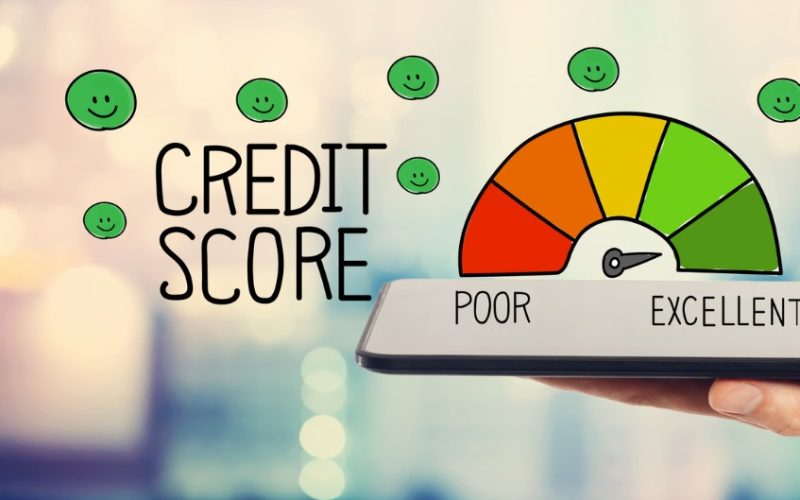Are you worried about your credit score in Canada? Don’t fret, because improving it is easier than you think! Your credit score plays a crucial role in determining your financial health and can impact your ability to get approved for loans or mortgages. In this blog post, we will guide you through the steps on how to improve your credit score in Canada. Not only that, but we will also explain how to calculate your credit score and what factors affect it. So sit tight and let’s dive into the world of credit scores!
What is a Credit Score?

Indicating your creditworthiness, a credit score is a three-digit number.
It is calculated based on the information provided by the credit bureaus, which includes your payment history, how much debt you owe, and other factors such as length of credit history and types of accounts.
Two main companies in Canada provide credit scores: Equifax and TransUnion. Each company has its formula for calculating the score, but they both use similar criteria.
The higher your credit score, the better your chances of getting approved for loans or mortgages with favourable terms. A high credit score indicates to lenders that you are responsible for managing debt and are more likely to make payments on time.
On the other hand, a low credit score can hinder your ability to get approved for loans or result in higher interest rates or fees. Therefore, it’s critical to comprehend the factors that influence your credit score so that you can take action to raise it.
The Importance of Credit Scores in Canada
Credit scores are a vital aspect of Canadians’ financial lives. A credit score is a numerical representation of your creditworthiness, which ranges from 300 to 900. The higher the number, the more reliable you appear as a borrower to lenders.
Having an excellent credit score can have significant benefits in Canada. It gives you access to lower interest rates on loans and mortgages, making it easier for you to borrow money when needed. Moreover, landlords and employers often check your credit history before renting or hiring you.
In addition, having a good credit score opens up opportunities for rewards like cashback and travel points through loyalty programs offered by banks and other lenders.
On the contrary, if your credit score is low, it can adversely impact your ability to secure loans or get approval for rental agreements or employment offers. Therefore maintaining good credit health is crucial.
Understanding the importance of having a healthy credit score helps individuals make informed decisions about their finances that will benefit them in both short-term and long-term goals.
How to Calculate Credit Score?
Calculating your credit score may seem like a daunting task, but it’s quite simple. Your credit score is calculated based on several factors, including your payment history, the amount of debt you have, the length of your credit history and other factors.
To calculate your credit score in Canada, you’ll need to get a copy of your credit report from one of the two major Canadian credit bureaus: Equifax or TransUnion. Once you have this information, you can use an online tool to calculate your actual score.
When calculating your credit score in Canada five main components are taken into consideration by lenders: payment history (35%), the amount owed (30%), length of time using credit (15%), new accounts opened (10%) and types of accounts used (10%).
It’s important to note that each lender has their unique algorithm for calculating scores so it’s always best to check with them directly for more specific requirements before applying for any loans or lines of credit.
How to Improve Credit Score Canada?

Improving your credit score is a crucial step towards achieving financial stability in Canada. If you’re looking to improve your credit score,
Here are the tips that will help:
- First and foremost, make sure you pay all of your expenses on schedule. Late payments can seriously damage your credit score, so it’s important to stay current with all of your monthly expenses.
- Secondly, try to reduce the amount of debt that you owe. High levels of debt can lower your credit score and make it difficult for you to obtain new loans for bad credit or lines of credit.
- Thirdly, keep an eye on your credit utilization ratio. This is the amount of available credit that you’re currently using – if this ratio is too high (i.e., more than 30%), it can negatively impact your credit score.
- Fourthly, avoid opening too many new accounts at once. Each time you apply for a new line of credit or loan product, it generates a hard inquiry on your report; too many inquiries within a short period can signal risk to lenders and harm their perception about lending money out to such persons
Consider working with a financial advisor or counsellor who specializes in helping people improve their finances and manage their debts effectively. With some patience and discipline over time, these steps should lead to an improvement in our deemed poor Canadian Credit Score!
How long does it take for your credit score to change?
The time it takes for your credit score to change depends on various factors. Generally, positive changes in your credit behaviour can take several months to reflect on your credit report and subsequently impact your score.
However, negative changes such as late payments or defaults can have an immediate effect on your credit score. The amount of time it takes to recover from these negative impacts largely depends on the severity of the incident.
For instance, a missed payment can lower your score by about 100 points but with timely repayment and consistent good behaviour, you may be able to recover within six months. On the other hand, bankruptcy could take up to ten years before being removed from your credit report.
It is important to note that each individual’s situation is unique so there is no exact timeline for how long it will take for their credit score to change. However, consistently practicing good financial habits such as paying bills on time and keeping balances low can help improve one’s overall credit health over time.
Factors Affecting Credit Score
Several factors can affect your credit score, and it’s essential to understand them if you want to improve it.
- One of the critical factors affecting your credit score is payment history. Late payments or missed payments can have a significant impact on your score as they indicate that you may not be able to repay debts on time.
- Another factor is credit utilization, which refers to how much of your available credit you’re using. Ideally, you should keep this below 30% if possible. High credit utilization can make lenders think that you’re relying too heavily on debt and are at risk of defaulting.
- Length of Credit History is another crucial factor in determining one’s credit score. The longer the history, the more comfortable for lenders to assess whether an individual has been responsible with their finances over time.
- Additionally, new credit applications can also negatively impact a person’s overall rating and result in lowering scores temporarily since creditors will perceive someone who opens several accounts simultaneously as financially unstable.
There are Types of Credit; having a diverse mix such as mortgage loans or car loans provides evidence that borrowers are capable enough in handling different types of credit – making them appealing candidates for lending purposes by showing well-rounded financial habits beyond just managing revolving lines like personal unsecured lines of credits (LOCs)
Tips to Maintain a Good Credit Score

Your financial stability depends on maintaining a high credit score. It reflects how responsible you are in managing your finances and paying off your debts.
Here are some tips to help you maintain a good credit score:
- Pay Your Bills On Time – Late payments can negatively impact your credit score, so it’s important to pay all of your bills on time.
- Keep Your Credit Utilization Low – Using too much of your available credit can make lenders think that you’re overextended, which could cause them to view you as a riskier borrower.
- Monitor Your Credit Report Regularly – Check for any errors or inaccuracies on your credit report and dispute any errors right away.
- Don’t Apply For Too Much New Credit At Once – Applying for multiple lines of new credit at once might indicate to lenders that you’re experiencing financial difficulty.
- Use Different Types Of Credit Responsibly – Having different types of loans such as car loans, mortgages or student loans besides having a few different revolving accounts (e.g., credit cards) shows positive seasoning history with creditors.
Keeping these tips in mind may not only help improve but also maintain a good credit score in Canada!
Conclusion
Having a good credit score is essential for Canadian’s financial lives, affecting the ability to get approved for loans, rent an apartment or even get that dream job. It’s important to understand what factors influence your credit score and how it’s calculated. To help build improvements over time, staying mindful of spending habits and paying bills on time as well as keeping low balances on credit cards can all contribute positively. Building a better financial future takes consistency and effort but the reward will be worth it. Take steps today toward improving your credit score!
FAQs on how to improve credit score canada
1. How can I build my credit fast in Canada?
- Always make timely payments on your invoices.
- If you are unable to pay the entire amount you owe, make at least the minimum payment.
- If you anticipate having problems paying a bill, get in touch with the lender soon once.
- Even if there is a dispute over a bill, don’t miss a payment.
2. How can I raise my credit score in 30 days?
Paying your bills on time and clearing the amounts on your credit cards are the best actions you can take to enhance your credit. Issuers report your payment history to the credit agencies every 30 days, thus being proactive can significantly enhance your credit.
3. Is 650 a good credit score in Canada?
In Canada, an acceptable credit score is often between 660 and 724. Your credit score is probably considered to be very good if it is between 725 and 759. Generally speaking, a credit score of 760 or higher is regarded as outstanding. The range of a credit score is between 300 and 900.
3. Can I pay someone to fix my credit?
You can get assistance from a credit repair business if you need it. For their services, they often charge anything from $19 to $149 per month. However, watch out for fraudulent credit repair offers, which could put you in an even worse financial situation. Bureau for Consumer Financial Protection.










